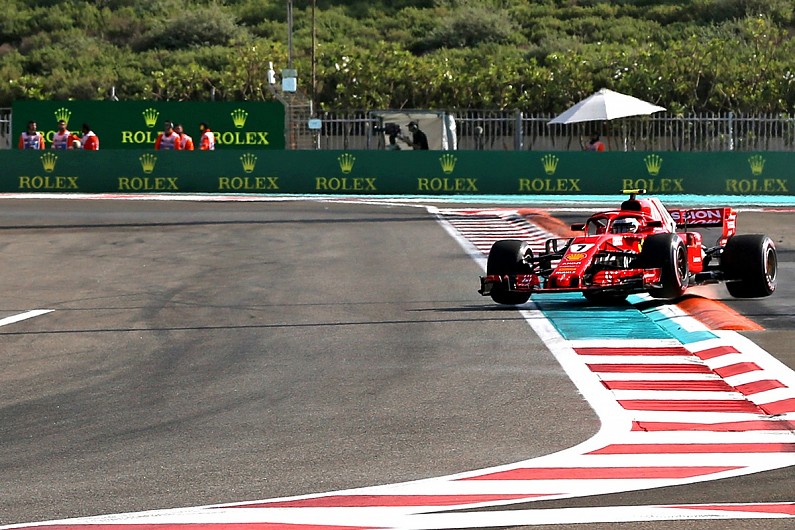Products You May Like
Get unlimited access
You have only 5 articles remaining to view this month.
FIA race director Charlie Whiting says the kerb before the final corner in Abu Dhabi eliminated the need for “zero-tolerance” penalties that he believes “demean” Formula 1.
While there was some controversy about the kerb’s height and the way it crumbled, drivers generally accepted that it did its job.
Whiting said it was a good example of using a kerb to ensure that drivers could not gain and advantage by running wide, which therefore eliminated the need to regularly assess penalties.
“I’m not one for saying every time [a driver] goes over the white line they should be penalised,” he explained when asked by Autosport.
“It that’s zero tolerance. Because as I’ve probably said countless times, leaving the track is not a penalty. Gaining an advantage from leaving the track is.
“We want to try to make sure that every time a driver leaves the track he doesn’t gain anything from it, and preferably he loses time doing it.
“I think on that basis that kerb between Turns 20 and 21 has worked very well. I’m pretty sure you can ask any driver if he can gain anything by going onto that kerb, he’d say, ‘No.’ That’s exactly the sort of thing I think we should have.
“Generally, what we want to do is make sure the track enforces the limits and we don’t have to resort to marshals or judges of fact reporting every time a car goes over the line.
“It’s something that is dreadfully tedious, and I think it demeans the sport.”
Whiting said it was not straightforward to introduce similar kerbs at every circuit.
“It’s not very easy sometimes to implement those things on circuits where you have motorcycle races, and that is why that kerb, unusually, is permanent,” he said.
“Normally we have to ask them to put down temporary ones that they can take up for bike racing. These are the sorts of problems we have to face on many different circuits.
“In Barcelona there are four corners with kerbs like that, but they all have to come out for MotoGP.
“It involves a lot of work for the circuits to change it from one spec to the other, and trying to find a solution that works for both is very difficult, but we have managed it with the double kerbs.
“They are quite punishing for cars. The bikes are happy with them. So we’ve got something the circuits don’t have to change.”
